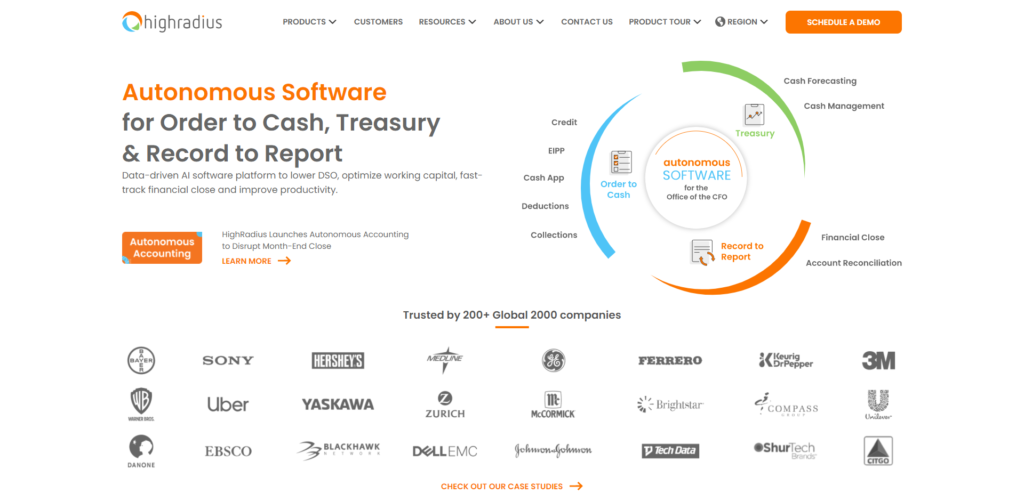Fintech SaaS companies and startups provide software solutions for financial services. They focus on innovation, efficiency, and user experience.
Fintech SaaS companies are revolutionizing the financial industry. They offer cloud-based software solutions that streamline financial processes and enhance customer experiences. Startups in this sector are agile, leveraging cutting-edge technologies like AI, blockchain, and machine learning. These solutions help businesses automate tasks, reduce costs, and improve accuracy.
Fintech SaaS platforms cater to various needs, from payment processing to risk management. Their growth is fueled by increasing demand for digital financial services. As a result, these companies attract significant investment and drive industry innovation. Fintech SaaS companies and startups are pivotal in shaping the future of finance, making services more accessible and efficient.

Credit: samboboev.medium.com
Introduction To Fintech Saas
The financial technology sector, known as Fintech, is booming. Fintech companies use technology to improve financial services. Software as a Service (SaaS) is a key player in this. Fintech SaaS companies offer cloud-based solutions to banks, startups, and businesses. These solutions are scalable, secure, and cost-effective. Let’s explore the rise of Fintech and SaaS in finance.
Rise Of Fintech
Fintech is changing how we handle money. Digital banking, mobile payments, and online loans are now common. Fintech startups are growing fast. They offer innovative solutions to old problems. For example:
- Mobile wallets for easy payments
- Robo-advisors for investment advice
- Peer-to-peer lending platforms
Banks are also adopting Fintech solutions. They use it to provide better services to customers. Fintech makes financial services faster and more accessible.
Saas In Finance
SaaS stands for Software as a Service. It is cloud-based software accessible via the internet. In finance, SaaS solutions are popular because they are flexible and scalable. Here are some benefits of using SaaS in finance:
| Benefit | Description |
|---|---|
| Cost-Effective | Lower upfront costs compared to traditional software. |
| Scalable | Easy to scale up or down based on demand. |
| Secure | Regular updates and security patches. |
| Accessible | Access from any device with an internet connection. |
Fintech SaaS companies offer various solutions. These include accounting software, fraud detection systems, and customer relationship management (CRM) tools. They help businesses streamline operations and improve efficiency.
Key Players In Fintech Saas
The Fintech SaaS landscape is evolving rapidly. Many companies are leading the way with innovative solutions. Both established companies and startups play significant roles. Let’s explore some key players in this space.
Leading Companies
| Company | Specialization |
|---|---|
| Stripe | Payment processing and financial infrastructure |
| PayPal | Online payment systems and digital wallets |
| Square | Merchant services and mobile payments |
| Shopify | E-commerce platform and payment solutions |
These companies have revolutionized financial services. They offer seamless and secure transactions. Their solutions are highly scalable and reliable.
Innovative Startups
Startups bring fresh ideas and creativity to the Fintech SaaS space. Here are some noteworthy examples:
- Chime: Digital banking services without hidden fees
- Brex: Corporate cards for startups with no personal guarantee
- Robinhood: Commission-free stock trading and investment
- Plaid: Connecting apps to users’ bank accounts
These startups are disrupting traditional financial systems. They focus on user-friendly experiences and innovative solutions. Their growth potential is immense.
The future of Fintech SaaS looks promising with these key players. Both leading companies and innovative startups are shaping the industry. Stay tuned for more exciting developments.
Core Technologies
Fintech SaaS companies and startups rely on core technologies. These technologies drive innovation and efficiency. Below are the key technologies shaping the industry today.
Ai And Machine Learning
AI and Machine Learning are revolutionizing fintech. They help in automating complex tasks. AI can analyze large datasets quickly. Machine Learning improves over time with data. Here are some benefits:
- Fraud detection
- Personalized customer experiences
- Automated customer support
Companies use AI for risk assessment. Machine Learning models predict market trends. This technology makes operations efficient and secure.
Blockchain And Cryptocurrencies
Blockchain is the backbone of Cryptocurrencies. It ensures secure and transparent transactions. Blockchain technology offers:
- Immutable records
- Decentralized finance (DeFi)
- Smart contracts
Cryptocurrencies like Bitcoin and Ethereum use blockchain. They provide an alternative to traditional banking. Blockchain reduces the need for intermediaries. This cuts costs and speeds up transactions.
| Technology | Key Benefits |
|---|---|
| AI and Machine Learning | Fraud detection, personalized experiences, automation |
| Blockchain and Cryptocurrencies | Secure transactions, decentralized finance, cost reduction |
These core technologies drive fintech forward. They make financial services more accessible and efficient.

Credit: www.rockethub.com
Transforming Financial Services
Fintech SaaS companies are changing how we handle money. They bring new tools and solutions to financial services. These companies make banking and investing easy and fast. Let’s dive into how they transform financial services.
Banking Solutions
Fintech SaaS companies offer modern banking solutions. They make managing money simple. You can open a bank account online in minutes. No more long waits at the bank.
Here are some key features:
- Online Account Opening
- Instant Transfers
- Mobile Wallets
- Automated Savings
These solutions are secure and user-friendly. They use advanced technology to keep your money safe. With mobile wallets, you can pay bills, buy goods, and transfer money with ease.
Investment Platforms
Investment platforms by Fintech SaaS companies are making investing accessible. You don’t need to be a finance expert to start.
Key benefits include:
- Low Fees
- Automated Portfolios
- Real-Time Analytics
- User-Friendly Interfaces
These platforms use AI to provide personalized investment advice. This helps you make informed decisions. You can track your investments and see how they grow.
Fintech SaaS companies are changing the way we bank and invest. They make these services faster, easier, and more secure.
Customer Experience
The customer experience in Fintech SaaS companies is crucial. It drives user satisfaction and loyalty. Companies are innovating to meet ever-evolving customer needs. Two critical areas are Personalized Services and User-Friendly Interfaces. These elements make a significant difference.
Personalized Services
Fintech SaaS companies offer personalized services to meet individual needs. These services use data to tailor experiences. Customers get recommendations based on their behavior and preferences.
- Custom investment advice
- Personalized loan options
- Expense tracking suggestions
These tailored services enhance user satisfaction. They make financial decisions easier.
| Service | Benefit |
|---|---|
| Custom investment advice | Better investment choices |
| Personalized loan options | Favorable loan terms |
| Expense tracking suggestions | Improved financial management |
User-friendly Interfaces
A user-friendly interface is essential for customer satisfaction. Fintech SaaS companies invest in intuitive designs. These designs make navigation easy and enjoyable.
- Simple dashboards
- Clear instructions
- Responsive design
These features reduce user frustration. They enhance the overall user experience.
Simple dashboards offer a clear overview. Users find important information quickly. Clear instructions guide users through complex processes. Responsive design ensures compatibility across devices. This makes financial management accessible anywhere, anytime.
Regulatory Challenges
Fintech SaaS companies and startups face many regulatory challenges. These challenges can impact operations and growth. Understanding these challenges is crucial for success.
Compliance Issues
Compliance is a major concern for Fintech SaaS companies. They must adhere to various laws and regulations. These include data protection and financial reporting standards.
Failure to comply can lead to severe penalties. Companies may face fines or even shutdowns. It’s essential to have a robust compliance strategy.
- Data Protection
- Financial Reporting
- Anti-Money Laundering (AML)
- Know Your Customer (KYC)
Having a dedicated compliance team helps. They can monitor changes in regulations. This ensures the company remains compliant at all times.
Global Regulations
Fintech companies often operate globally. They must navigate different regulations in each country. This can be complex and time-consuming.
Understanding global regulations is key. Each country has its own set of rules. Here are some examples:
| Region | Regulation |
|---|---|
| EU | General Data Protection Regulation (GDPR) |
| USA | Gramm-Leach-Bliley Act (GLBA) |
| Asia | Various local regulations |
Staying updated on global regulations is crucial. This helps avoid legal issues. It also builds trust with international clients.
Future Trends
The fintech industry is growing rapidly. New trends are shaping its future. Let’s explore two key trends: Decentralized Finance and Sustainability and ESG.
Decentralized Finance
Decentralized Finance (DeFi) is transforming the financial landscape. It removes intermediaries, offering more control to users. Here are some significant aspects of DeFi:
- Smart Contracts: These automate transactions, reducing costs and errors.
- Liquidity Pools: They enable efficient trading and lending.
- Decentralized Exchanges (DEXs): Users trade directly without a central authority.
DeFi offers greater transparency and security. It’s revolutionizing how we handle money.
Sustainability And Esg
Fintech SaaS companies are focusing on Sustainability and Environmental, Social, and Governance (ESG) criteria. This focus aligns with global efforts to combat climate change and promote social responsibility. Key areas include:
| Area | Details |
|---|---|
| Green Finance | Funding projects with positive environmental impacts. |
| ESG Reporting | Tracking and reporting ESG metrics for transparency. |
| Sustainable Investing | Directing capital towards sustainable ventures. |
Adopting sustainability practices helps companies attract eco-conscious investors. It also ensures long-term growth and stability.

Credit: thefr.com
Case Studies
Exploring case studies of fintech SaaS companies provides valuable insights. These stories highlight successful implementations and lessons learned. They offer practical knowledge for startups and established firms alike. Let’s delve into some remarkable examples.
Successful Implementations
Many fintech SaaS companies have achieved great success. Here are a few notable implementations:
| Company | Solution | Impact |
|---|---|---|
| Stripe | Payment Processing | Streamlined online transactions for millions of users |
| Robinhood | Stock Trading | Democratized access to financial markets |
| PayPal | Digital Payments | Enhanced global e-commerce capabilities |
These companies have revolutionized financial services. They have set new standards in their respective fields.
Lessons Learned
Analyzing these case studies reveals crucial lessons:
- User-Centric Design: Prioritize the user experience. Make interfaces intuitive and easy to use.
- Scalability: Build solutions that grow with user demand. Ensure systems handle increased traffic smoothly.
- Security: Implement robust security measures. Protect user data and maintain trust.
- Regulatory Compliance: Stay updated with regulations. Ensure your platform complies with legal standards.
- Continuous Innovation: Keep innovating. Adapt to market changes and technological advancements.
These lessons are vital for fintech SaaS success. They guide startups towards sustainable growth.
Frequently Asked Questions
What Are Fintech Saas Companies?
Fintech SaaS companies use software-as-a-service to deliver financial technology solutions. They offer cloud-based tools for banking, payments, and financial management. Their services are scalable, cost-effective, and accessible online.
How Do Fintech Startups Innovate?
Fintech startups innovate by leveraging technology to solve financial problems. They use AI, blockchain, and big data to create new financial services. These innovations improve efficiency, reduce costs, and enhance customer experience.
Why Invest In Fintech Saas Startups?
Investing in Fintech SaaS startups offers high growth potential. These companies are transforming the financial industry with innovative solutions. They provide scalable, recurring revenue models, making them attractive to investors.
What Challenges Do Fintech Startups Face?
Fintech startups face regulatory hurdles and cybersecurity threats. They must comply with financial regulations and protect customer data. Competition is intense, requiring constant innovation to stay ahead.
Conclusion
Fintech SaaS companies and startups are revolutionizing financial services. They offer innovative solutions and convenience. As technology evolves, these companies will continue to grow. Embracing these advancements can lead to significant benefits. Stay updated with the latest trends to leverage their potential.
The future of finance is being shaped by these dynamic entities.
